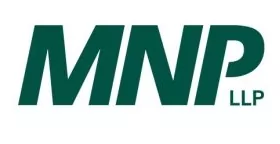IFRIC (International Financial and Reporting Interpretations Committee) recently examined how IFRS 5 Non-current Assets Held for Sale and Discontinued Operations should apply when a disposal plan is intended to be achieved by means of an initial public offering, but the prospectus to make that happen hasn't yet been approved by the securities regulator. Specifically, the group was asked "to clarify whether the disposal group would qualify as held for sale before the prospectus is approved by the securities regulator, assuming that all of the other criteria in IFRS 5 have been fulfilled."
Analyzing IFRS 5
IFRIC decided not to add the issue to its agenda, on the basis that the standard already contains sufficient guidance. Applying the IFRS 5 "held for sale" criteria in this situation, some of them relate to conditions that must already have occurred – for example, the appropriate level of management which must be committed to a plan to sell the asset or disposal group. Other aspects of the criteria depend on expectations of the future, subject to the overriding condition that the sale must be "highly probable"; for example, the sale should be expected to qualify for recognition as a completed sale within one year from the date of classification (except for certain defined exceptions). Of course, the realities of needing to complete an IPO within that one year period is certainly relevant to assessing that criterion. Ultimately, IFRIC's implicit point seems to be that all IPOs aren't created equal and that all securities regulatory authorities and processes around the world aren't created equal either, so it's impossible to set out a bright line saying that such an event would always be viewed one way or the other.
IFRS – No Concessions
This is an interesting illustration of a broader point. Namely, that being a private versus a public entity (using the terms loosely) or being in transition from one to the other doesn't inherently affect the application of IFRS as much as people sometimes think it should. IFRS doesn't have the differential reporting options that used to exist under old Canadian GAAP and doesn't extend many concessions to private entities regarding the volume of disclosures (although it does exempt them from segment reporting and from providing earnings per share information). For another example, under old Canadian GAPP, private companies, unless in a filing made in preparation for going public, were allowed to exclude expected volatility from the measurement of stock-based compensation (the so-called "minimum value" method), but IFRS 2 specifically addresses this point and requires the entity to estimate expected volatility one way or another.
Broadly speaking then, IFRS is built on the premise that while being a private versus a public entity may entail various kinds of differences, there's no fundamental distinction between the two that by its nature, affects what kind of recognition or measurement principles make sense for particular items or (with narrow exceptions) what kind of disclosure is appropriate to support an assertion of compliance with the standards.
Even when IFRS does allow for a difference, it's based on substance, not on the mere fact of being public versus private. For an example relating to the content of statements rather than to the status of the preparer, IAS 39 allows measuring investments in unquoted equity instruments at cost rather than at fair value when their fair value "cannot be reliably measured." But the application guidance makes it clear that this has to be justified by the facts of each given situation, stating for instance that "normally it is possible to estimate the fair value of a financial asset that an entity has acquired from an outside party." And anyway, this exception is on the way out, as the forthcoming IFRS 9 doesn't address the issue in the same way. Instead, it requires measuring all instruments in equity investments at fair value, while allowing that, in limited circumstances, cost may be an appropriate estimate of this fair value.
The Challenge of Going Public
It was widely discussed during Canada's transition period to IFRS that private companies may find compliance to be more than they really need for their own purposes, unless they're planning on going public in the near future. In that case (in theory anyway), the financial reporting aspect of the IPO process should be much easier if they're already accustomed to complying with IFRS. Of course, as a practical matter, it's unlikely to be quite that simple. However diligent the practices already in place as a private entity, the extra scrutiny leading up to the IPO may change the focus on certain areas, if only in matters of disclosure (such as estimation uncertainties or risks attaching to financial instruments). But this is just another way of saying the quality of application of accounting policies and disclosures has to be revisited in the light of any relevant change in circumstances, such as changes in economic climate, competition or in other forms of regulatory oversight. The distinction between public and private is certainly a common and prominent example of such a change, but ultimately, it's not one that IFRS finds much need to single out.
The content of this article is intended to provide a general guide to the subject matter. Specialist advice should be sought about your specific circumstances.

